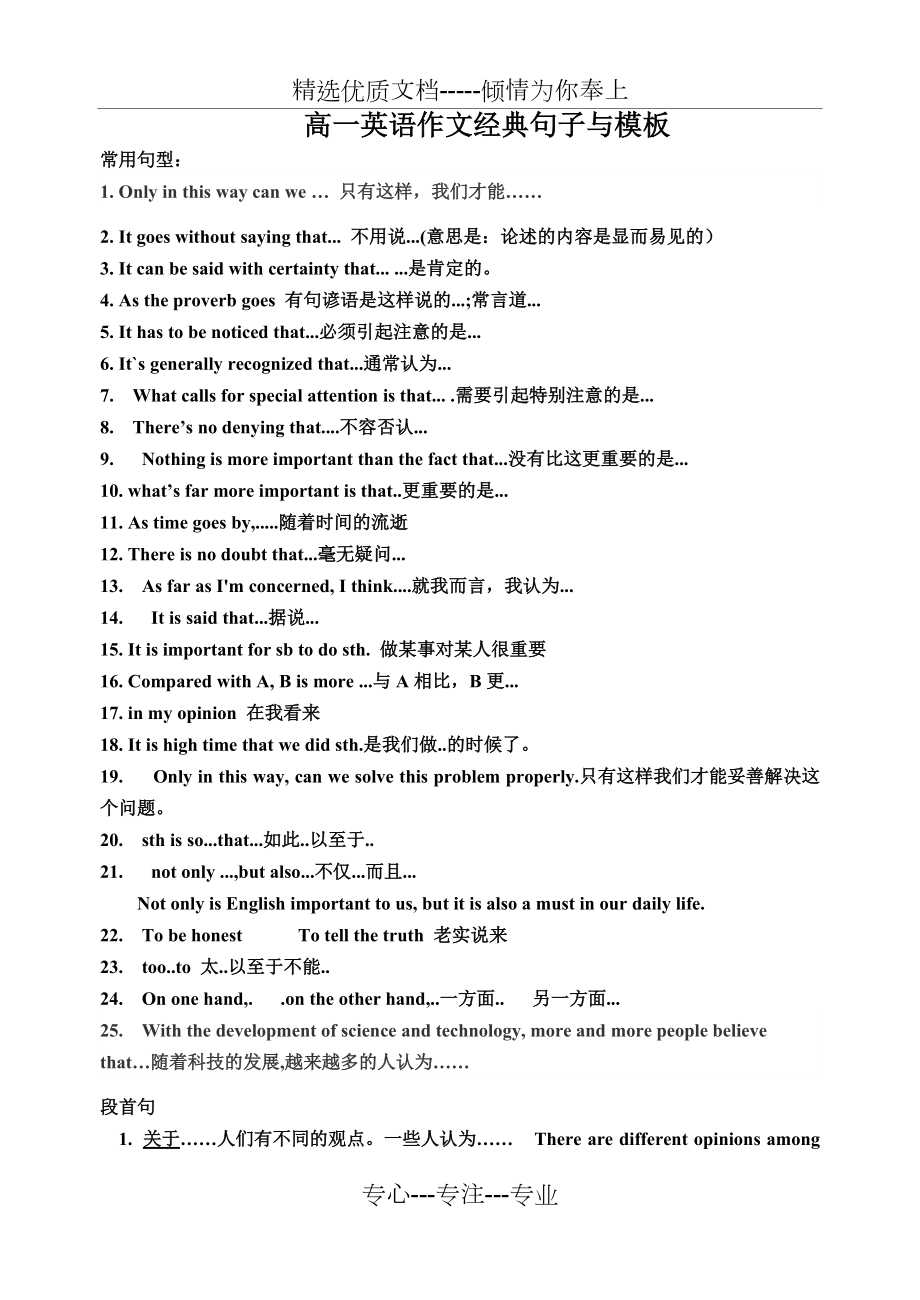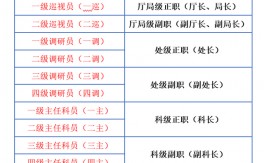英語三級(jí)作文模板及萬能句子
英語三級(jí)考試,通常指的是中國大學(xué)英語三級(jí)考試(CET-3),這是中國大學(xué)英語教學(xué)體系中的一個(gè)等級(jí)。作文部分是考試的重要組成部分,通常要求考生能夠?qū)懗鼋Y(jié)構(gòu)清晰、語言流暢的短文。以下是一些作文模板和萬能句子,可以幫助你構(gòu)建作文框架和豐富內(nèi)容:
作文模板
1. 問題解決型(Problem-Solution Essay)
- 引言:介紹問題
- 正文:分析問題原因
- 正文:提出解決方案
- 結(jié)尾:總結(jié)并提出自己的建議
2. 對(duì)比論證型(Comparison and Contrast Essay)
- 引言:介紹主題和對(duì)比點(diǎn)
- 正文:對(duì)比點(diǎn)一
- 正文:對(duì)比點(diǎn)二
- 結(jié)尾:總結(jié)并提出自己的觀點(diǎn)
3. 觀點(diǎn)論證型(Argumentative Essay)
- 引言:提出觀點(diǎn)
- 正文:支持觀點(diǎn)的理由一
- 正文:支持觀點(diǎn)的理由二
- 正文:可能的反對(duì)意見及反駁
- 結(jié)尾:總結(jié)觀點(diǎn)
4. 描述型(Descriptive Essay)
- 引言:介紹主題
- 正文:詳細(xì)描述
- 結(jié)尾:總結(jié)描述內(nèi)容
萬能句子
1. 引言部分
- Nowadays, with the rapid development of..., the issue of... has drawn public attention.
- It is universally acknowledged that...
2. 正文部分
- There are several factors contributing to this phenomenon.
- On the one hand, ... On the other hand, ...
- For instance, ...
- Moreover, ...
- However, just as every coin has two sides, ... also has its disadvantages.
3. 結(jié)尾部分
- In conclusion, ...
- To sum up, ...
- From what has been discussed above, we can draw the conclusion that...
4. 提出建議
- It is high time that we put an emphasis on...
- It is suggested that...
- It is advisable to...
5. 表達(dá)個(gè)人觀點(diǎn)
- In my opinion, ...
- From my point of view, ...
- I am convinced that...
6. 原因分析
- The reasons are as follows.
- There are several reasons for this trend.
7. 結(jié)果說明
- As a result, ...
- Consequently, ...
- This leads to...
8. 轉(zhuǎn)折
- However, ...
- Nevertheless, ...
- On the contrary, ...
9. 舉例
- For example, ...
- Take... for instance.
10. 強(qiáng)調(diào)
- It is particularly worth mentioning that...
- What is more important is that...
使用這些模板和句子時(shí),記得要確保文章內(nèi)容的連貫性和邏輯性。

公共英語三級(jí)寫作萬能模板
公共英語三級(jí)考試(PETS-3)的寫作部分通常包括應(yīng)用文寫作和圖表作文。以下是一些常見的寫作模板,你可以不要生搬硬套。注意語法、拼寫和標(biāo)點(diǎn)的正確使用。
希望這些模板能夠幫助你準(zhǔn)備公共英語三級(jí)的寫作部分!
英語三級(jí)作文模板
英語三級(jí)作文,通常指的是中國大學(xué)英語三級(jí)考試(CET-3)的作文部分。這類作文通常要求考生能夠就給定的話題寫出一篇結(jié)構(gòu)清晰、語言準(zhǔn)確的短文。以下是一些常見的作文模板,你可以要確保內(nèi)容的連貫性和邏輯性。注意使用恰當(dāng)?shù)倪B接詞和過渡句,使文章更加流暢。

 微信掃一掃打賞
微信掃一掃打賞











